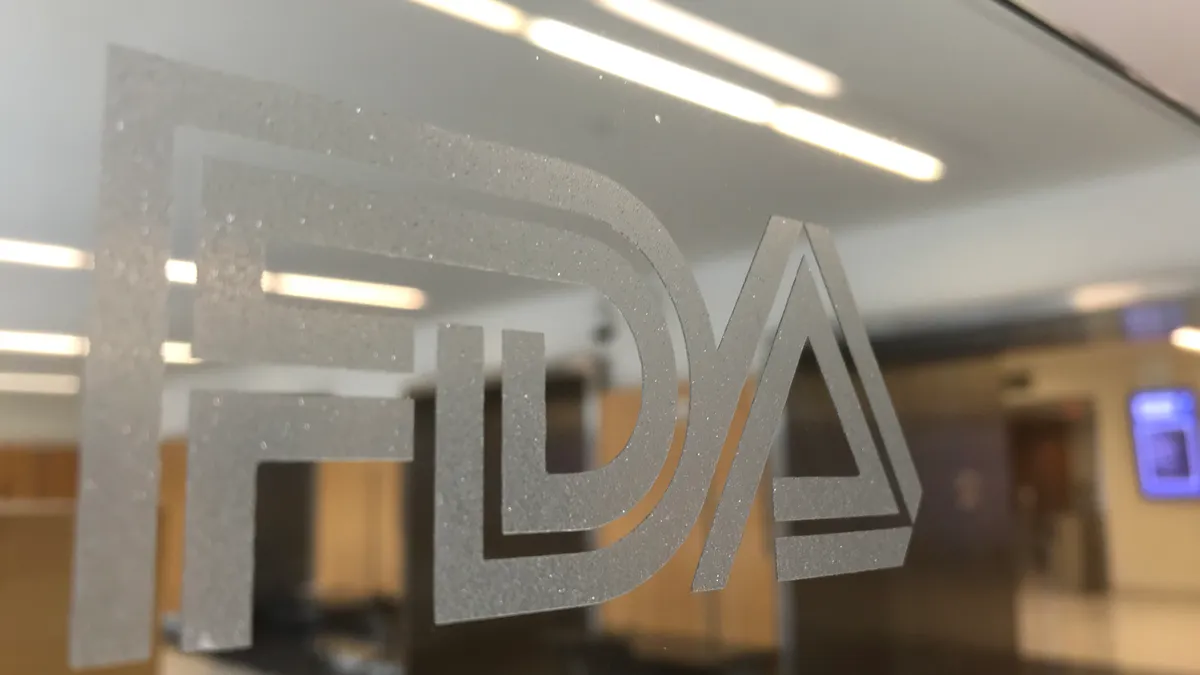Dive Brief:
- FDA late Wednesday announced emergency use authorizations for Abbott, Becton Dickinson and Quidel rapid COVID-19 antigen tests intended for serial screening of asymptomatic individuals multiple times on a routine basis.
- Although the diagnostics were previously authorized by FDA to test those with COVID-19 symptoms, the latest EUAs are meant to give schools, workplaces, and communities options for the testing of asymptomatic people when used for serial screening involving repeated tests.
- While the EUAs for Abbott and Quidel are for over-the-counter use, BD's test requires a prescription, which "along with the fact an instrument is needed, limits the use-cases for the company significantly," according to William Blair analysts. The analysts contend the authorization of Quidel's QuickVue at-home OTC test is potentially the "most meaningful" as it opens new markets the company "was unable to easily access previously."
Dive Insight:
The latest EUAs follow the agency’s initiative last month to create a supplemental template for developers to expedite the process for tests for use in COVID-19 screening programs. The move appears to have benefited Quidel in particular, which had been held up by the need for data in asymptomatic individuals as it pursued an OTC version of its QuickVue SARS product.
Craig-Hallum analyst Alex Nowak specifically credited the authorization granted to Quidel due to the FDA's recent EUA template change.
Abbott's BinaxNOW COVID-19 diagnostic in multiple configurations was granted EUA status: an antigen self-test was authorized for OTC at-home serial screening, an antigen card test received authorization for OTC at-home serial testing with a telehealth proctor, and an antigen card test was authorized for point-of-care (POC) serial screening without a prescription.
However, the asymptomatic serial screening authorization for BinaxNOW is "not all that impactful for Abbott given that the company is selling most of these tests through contracts with the federal government and various states" which are "using them almost entirely on the asymptomatic population already," according to William Blair analysts.
The analysts also noted that EUAs were issued to both Abbott and Quidel for their "non-instrumented antigen tests to be used in the OTC setting with no prescription required." However, BD's Veritor System for Rapid Detection of SARS-CoV-2 was authorized for POC serial screening with a prescription, a distinction the analysts see as a potential negative for the company.
"We remind investors that Becton Dickinson has recently communicated that supply of its Veritor antigen test for COVID-19 is currently greater than demand, and in our view, this authorization alone does not change that dynamic. We therefore see the EUA as least impactful for this company," the analysts wrote.
Nowak contends that Abbott will have a "more prominent placement in retail initially due to its other consumer channels."
However, in the long run, Nowak expects Abbott, Quidel and other OTC approvals like Ellume (antigen), Cue Health (molecular) and Lucira (molecular), which have had limited capacity to date, to compete for "this very large alternative market" as they scale up.
Harvard epidemiologist Michael Mina, an advocate for rapid antigen testing, in a written statement specifically called out the OTC, no-prescription use of the Abbott and Quidel tests as game-changers.
"This is a huge milestone and a direct result of the new serial screening policy announced by the FDA two weeks ago. These authorizations represent the advancements we’ve needed to make frequent rapid at-home testing more affordable and accessible to all Americans," Mina said.
School testing takes center stage
The Biden administration last month committed $12 billion to expand COVID-19 testing, with $10 billion going to states for school screening programs in an effort for them to safely reopen in the remaining months of the academic year.
Even with the FDA emergency use, antigen tests in asymptomatic individuals remain controversial, in part because they are less sensitive than PCR tests as well as on worries that a high rate of false negatives might nullify the benefits of mass testing. A CDC study released in January found that Abbott's rapid point-of-care BinaxNOW antigen test may miss nearly two-thirds of COVID-19 infections in people without symptoms.
FDA in November also issued an alert to clinical laboratory staff and healthcare providers that false-positive results can occur with antigen tests.
"Because of the lower sensitivity with antigen tests versus molecular testing, the EUA requires serial testing to be done in such a way where individuals are told to perform two tests (the tests are to be sold in a two-pack) over a defined period, which actually can serve as a benefit to these companies in terms of the number of tests sold in these newly approved settings," according to William Blair analysts.
Under its EUA, Abbott’s BinaxNOW OTC test must test twice over three days with at least 36 hours between tests. BD's EUA for its instrumented Veritor antigen test for asymptomatic COVID-19 screening through serial testing stipulates that individuals are to be tested twice over two or three days with at least 24 hours and no more than 48 hours between tests. Quidel’s authorization for its QuickVue OTC test calls for testing twice over two or three days with at least 24 hours and no more than 36 hours between tests.
Despite the sensitivity concerns, the diagnostics are still seen by the Biden administration as a viable option for school-based testing given their low cost and fast results. A recent study commissioned by The Rockefeller Foundation found weekly testing with Abbott's BinaxNOW rapid antigen test reduced in-school COVID-19 infections by up to 50%.
A CDC document states that both PCR tests that deliver results within 24 hours and point-of-care antigen kits are suitable for school screening programs.











